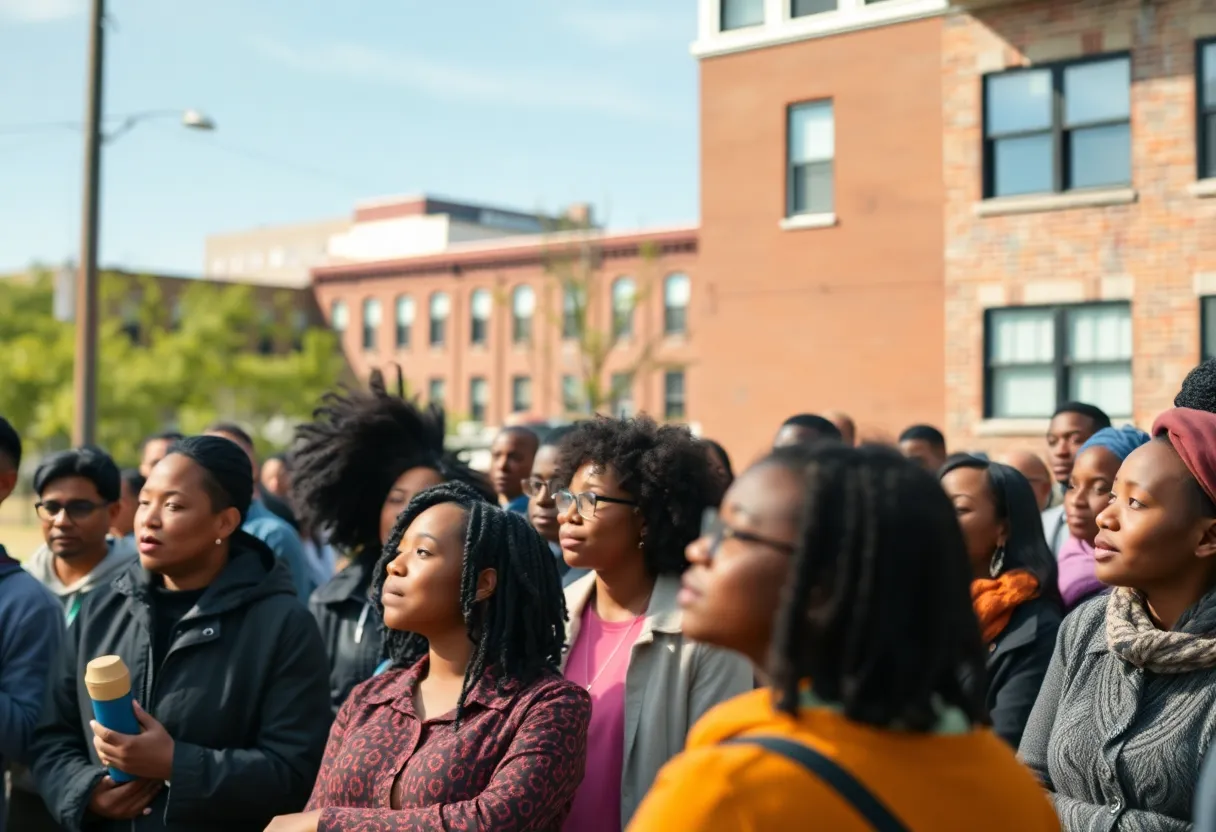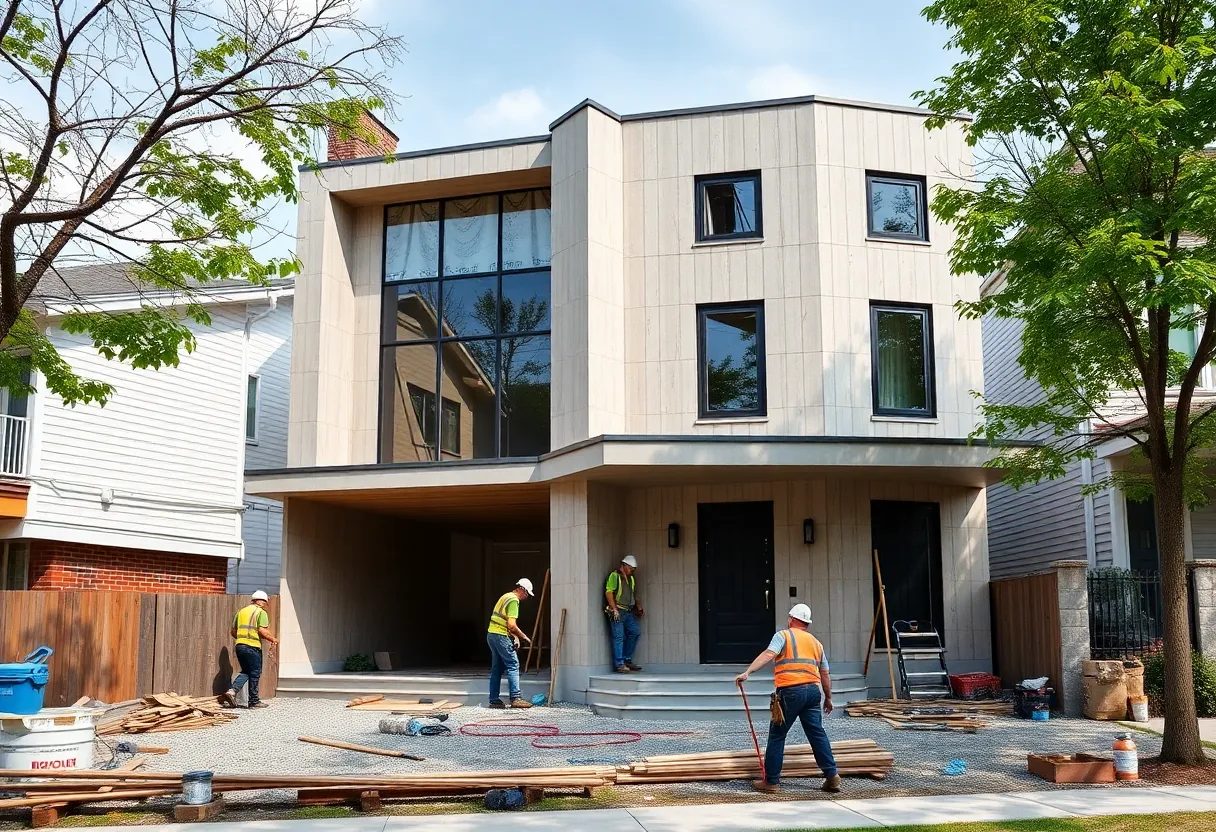News Summary
Residents in Baltimore’s Wyman Park and Remington neighborhoods are expressing significant opposition to Johns Hopkins University’s plans for a new Data Science and Artificial Intelligence Institute. Concerns primarily revolve around environmental risks associated with stormwater management and the project’s impact on local infrastructure, including the potential for increased flooding and chemical contamination. Despite JHU’s commitments to mitigate these risks, community members remain vigilant regarding environmental safety measures and the project’s overall effects on their neighborhoods.
Baltimore Residents Oppose Johns Hopkins University’s New AI Institute Over Environmental and Project Concerns
Baltimore, MD — Residents of the neighborhoods of Wyman Park and Remington are raising significant concerns regarding Johns Hopkins University’s (JHU) plans to construct its new Data Science and Artificial Intelligence Institute (DSAI). The community opposition centers on environmental risks, the scope of the project, and potential impacts on local infrastructure.
Community Opposition Focuses on Environmental Protections and Project Size
Community members allege that JHU has requested a waiver that could weaken stormwater protections during the construction phase of the DSAI project. This move has sparked fears that increased runoff may exacerbate existing flooding problems and threaten ongoing environmental restoration efforts. Baltimore officials have invested over $10 million into restoring the Stony Run watershed, a vital natural ecosystem, with residents worried that further development might undo this progress.
The opposition also highlights concerns about stormwater management and the risk of chemical contamination. Nearby construction sites, such as the Agora Building, have raised additional fears of potential chemical spills or runoff affecting local waterways and wildlife. Community members and environmental advocates emphasize that improper handling of stormwater could lead to environmental degradation and pollution, threatening both ecology and public health.
Measures and Responses by Johns Hopkins University
In response to these concerns, JHU has taken steps to address stormwater issues. Following a city inspection, the university installed a fence around the construction site to contain stormwater runoff and prevent environmental contamination. JHU has also committed to upgrading infrastructure to manage increased rainfall effectively. Specific improvements include adding a new stormwater line with approximately 20% more capacity and constructing a 500,000-gallon rainwater cistern designed to capture and reuse stormwater.
Additionally, the university has committed to minimizing the impact on surrounding homes. Resident concerns about structural safety have led JHU to offer voluntary structural surveys to assess potential impacts from nearby construction activities. Environmental monitoring plans involve hiring consultants to oversee efforts to protect Stony Run Creek and its surrounding wildlife, aiming to maintain ecological integrity during construction.
Project Details and Community Engagement
The DSAI project aims to transform Baltimore into a significant technology hub and is projected to generate substantial economic benefits, including about 11,000 jobs and an estimated $1.6 billion in economic impact. The facility will include two new buildings near Wyman Park Drive and Remington Avenue, with an expected completion date in 2029.
To address space concerns, Johns Hopkins has scaled back the size of the project by approximately 30%, reducing it to about 476,572 square feet. The project also plans to plant 300 new trees to replace those removed during construction, aiming to mitigate environmental impact.
Community engagement remains active, with Johns Hopkins hosting a series of public meetings—14 in total over the past two years—to discuss project plans and address neighborhood concerns. Residents have advocated for measures to minimize construction noise, reduce traffic disruptions, and ensure safety during the project’s implementation.
Public Comment Period and Future Steps
Baltimore City has opened a window for public comments on the project, which will remain open until Friday, October 10, at 4:30 PM. This public input period allows community members to submit feedback, ask questions, or suggest modifications to mitigate environmental and neighborhood impacts.
Johns Hopkins University emphasizes that the DSAI project is designed to contribute to advancements in healthcare, science, and technology. The university states its commitment to sustainable development practices and environmental safeguards in response to the community’s concerns.
As the project progresses, community members and city officials will continue to monitor its environmental safety measures, infrastructure upgrades, and community benefits to ensure transparency and cooperation. The outcome of the public comment process and ongoing oversight will be critical in shaping the project’s future development and its integration into the Baltimore neighborhood fabric.
Deeper Dive: News & Info About This Topic
HERE Resources
Additional Resources
- CBS News: Johns Hopkins DSAI Development
- Wikipedia: Environmental Impact Statement
- The Banner: Johns Hopkins AI Center
- Google Search: Johns Hopkins environmental impact
- Baltimore Fishbowl: Structural Surveys Offered by JHU
- Encyclopedia Britannica: Stormwater Management
- WMAR2 News: Controversy Over JHU AI Institute
- Google News: Johns Hopkins DSAI
Author: STAFF HERE WASHINGTON DC
The WASHINGTON DC STAFF WRITER represents the experienced team at HEREWashingtonDC.com, your go-to source for actionable local news and information in Washington, DC, and beyond. Specializing in "news you can use," we cover essential topics like product reviews for personal and business needs, local business directories, politics, real estate trends, neighborhood insights, and regional news affecting the area—with deep expertise drawn from years of dedicated reporting and strong community input, including local press releases and business updates. We deliver top reporting on high-value events such as the National Cherry Blossom Festival, Kennedy Center Honors, and the Washington Auto Show. Our coverage extends to key organizations like the Greater Washington Board of Trade and Destination DC, plus leading businesses in government contracting and technology that power the local economy such as Lockheed Martin and Amazon. As part of the broader HERE network, we provide comprehensive, credible insights into the dynamic landscape of the Washington metropolitan area.




